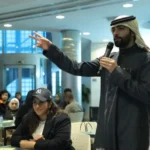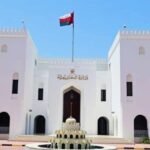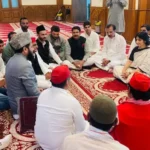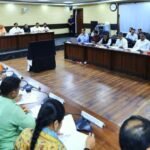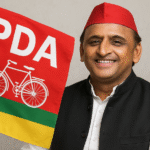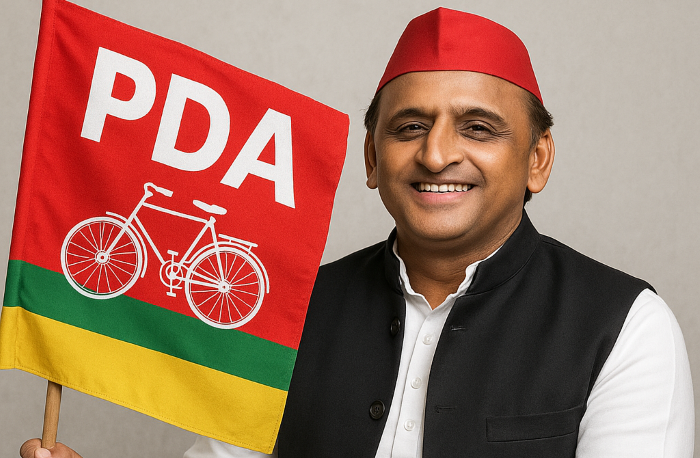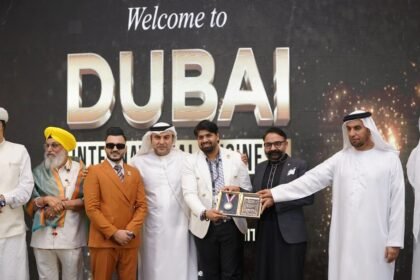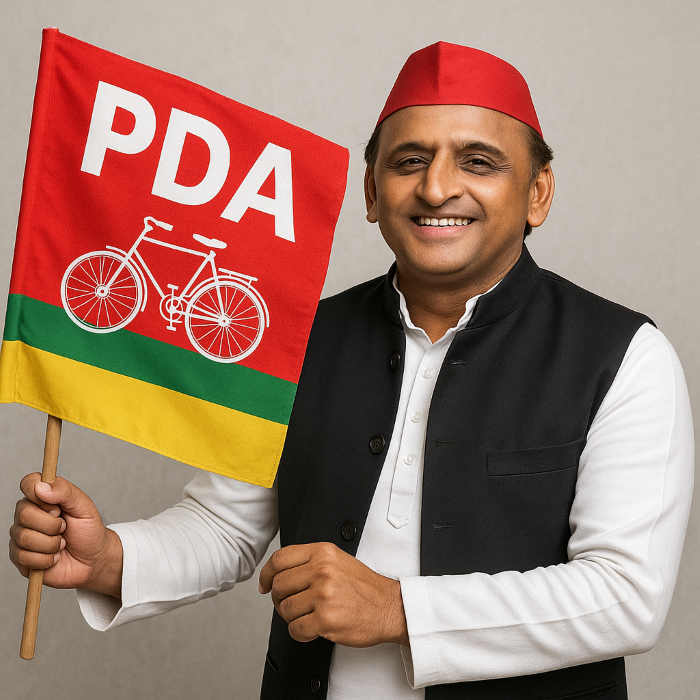
By ASIF RIYAZ
In India’s vibrant heart, where democracy pulses with passion, a profound shift is reshaping the political landscape. The Arabian Times Survey Team, headed by Asif Riaz comprising esteemed journalists Sanjay Mishra, Hayat Qadri, Mohammad Zeeshan, Kuldeep Singh Yadav, Ravi Kant Vishwakarma, Anwar Alam, Mujeebur Rehman, Azeem Siddiqui, and Aijaz Siddiqui, has documented this transformative tide. From Uttar Pradesh’s bustling cities to its tranquil villages, a powerful voice rises, uniting communities across religious, caste, and economic lines. Rejecting the divisive politics of hate, India’s people, Muslims, Dalits, and backward castes, are rallying behind the Pichhda, Dalit, Alpsankhyak (PDA) alliance, a beacon of inclusivity. Led by the Samajwadi Party, this coalition champions the marginalized, restoring faith in secular democracy. The team’s rigorous survey across Rampur, Moradabad, Varanasi, and beyond reveals a resounding rejection of polarization and a demand for equity and justice. As the neutral Hindu and oppressed communities awaken to shared struggles, the PDA, with the SP at its forefront, offers hope for a united India, where diversity is strength and every voice matters.
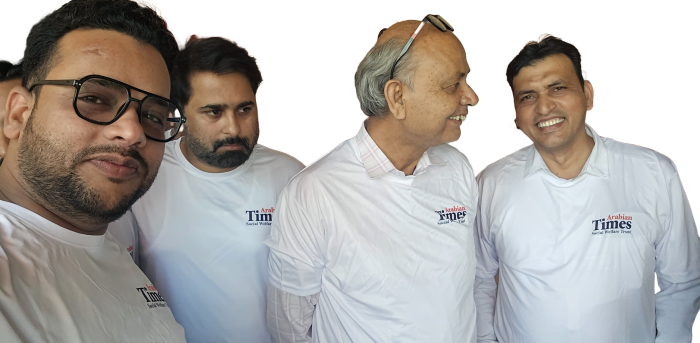
In the heart of India, where the pulse of democracy beats with fervor, a powerful undercurrent is reshaping the political landscape. From the bustling streets of Uttar Pradesh’s urban centers to the quiet hamlets of its rural expanse, a unified voice is rising, one that transcends religious, caste, and economic divides. This voice carries a resounding message: the politics of hate, division, and exclusion are losing ground. The people of India, from diverse walks of life, are rejecting the divisive rhetoric that has long fractured the nation’s social fabric. Instead, they are rallying under the banner of the Pichhda, Dalit, Alpsankhyak (PDA) alliance, a coalition that embodies the aspirations of marginalized communities and seeks to restore the soul of India’s secular democracy. At the forefront of this movement stands the Samajwadi Party (SP), a beacon of hope for millions, particularly Muslims, Dalits, and backward castes, who see it as a vehicle for inclusive progress and constitutional values.
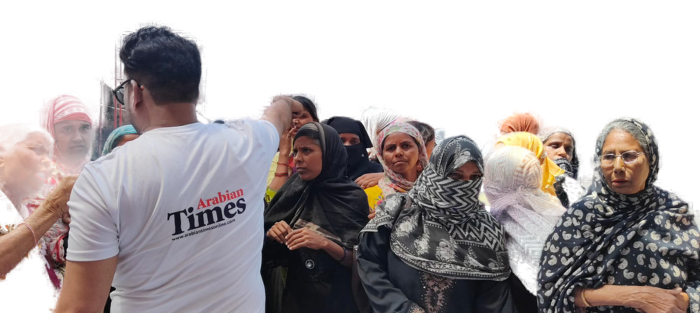
A NATION AWAKENING TO SHARED STRUGGLES
The call for unity is not a fleeting sentiment but a profound realization born from decades of lived experience. For too long, the politics of polarization has pitted communities against one another, sowing discord and undermining the principles of equality and justice enshrined in India’s Constitution. The Bharatiya Janata Party (BJP), with its aggressive brand of majoritarianism, has often been accused of eroding the nation’s secular foundation. Its policies, many argue, have disproportionately harmed minorities, particularly Muslims, while failing to deliver equitable development for all. But the narrative is shifting. The neutral Hindu, once swayed by promises of cultural supremacy, is now awakening to the reality of being misled by divisive agendas that prioritize spectacle over substance. Similarly, Dalits, long marginalized and exploited, are recognizing that their liberation lies not in isolation but in solidarity with other oppressed groups.
This growing awareness is evident across India, from the vibrant markets of Faridabad to the historic lanes of Gorakhpur. The Arabian Times Survey Team, in an exhaustive journey through Uttar Pradesh, a state that holds the key to India’s political destiny, captured this sentiment in vivid detail. Covering Muslim-dominated districts like Rampur, Moradabad, Bijnor, and Varanasi, as well as regions with significant Muslim populations such as Lucknow, Kanpur Nagar, and Azamgarh, the survey revealed a groundswell of support for a united front against authoritarianism and social injustice. The findings underscored a powerful truth: the struggles of Muslims are no longer theirs alone. Dalits, backward castes, and economically weaker sections are joining hands, recognizing that their challenges are interconnected, and their futures intertwined.
THE PDA ALLIANCE: A BEACON OF HOPE
At the heart of this movement lies the PDA alliance, a coalition that brings together Pichhda (backward castes), Dalits, and Alpsankhyak (minorities, particularly Muslims). This alliance is not merely a political strategy but a social necessity, born from the shared experiences of exclusion, discrimination, and unfulfilled promises. The PDA represents a vision of India where every citizen, regardless of caste, creed, or economic status, has a voice and a stake in the nation’s progress. It is a rejection of the politics of hate that has sought to divide Hindus and Muslims, upper castes and lower castes, rich and poor. Instead, it offers a path toward unity, equity, and justice.
The Samajwadi Party has emerged as the leading force in this growing alliance, earning renewed faith even among those whose support had once wavered. Under the leadership of Akhilesh Yadav, the SP has consistently championed the cause of marginalized communities, advocating for policies that address their immediate concerns while upholding the principles of secularism and social justice. From opposing discriminatory laws to amplifying the voices of the oppressed, the SP has built a legacy of trust that resonates deeply with voters, particularly in Muslim-dominated regions.
The Arabian Times survey found that six out of every ten Muslim respondents in Uttar Pradesh expressed unwavering intent to vote for the SP in the 2027 Assembly elections. This overwhelming support is a testament to the party’s deep-rooted connection with the community, forged over decades by leaders like Mulayam Singh Yadav and continued by his son. In districts like Rampur, Moradabad, and Saharanpur, where Muslims constitute over 30% of the population, the SP’s dominance is unassailable. Even in areas with smaller but significant Muslim populations, such as Lucknow and Varanasi, the party’s message of inclusivity and progress has struck a chord.
THE DECLINE OF DIVISIVE POLITICS
The BJP’s approach, once heralded by some as a bold assertion of cultural identity, is increasingly being seen as a betrayal of India’s pluralistic ethos. The neutral Hindu, who once believed in the party’s promises of economic prosperity and national pride, is now grappling with the reality of unfulfilled commitments. Rising unemployment, soaring inflation, and a lack of meaningful development have exposed the hollowness of slogans and symbols. The Dalit community, too, has grown disillusioned with the BJP’s failure to address their systemic marginalization. Promises of empowerment have rung hollow in the face of persistent caste-based discrimination and economic exclusion.
This disillusionment is not limited to any one community. The BJP’s politics of hate, which once thrived on polarizing Hindus and Muslims, is now being rejected by a broad cross-section of society. The neutral Hindu is beginning to see through the veneer of divisive rhetoric, recognizing that the true cost of such politics is borne by the nation as a whole. The erosion of secular democracy threatens not just minorities but the very foundation of India’s unity and diversity. As one respondent in Gorakhpur poignantly remarked, “We were told to fear each other, but now we see that our real enemy is division itself. We want a government that works for all of us, not just a few.”
THE DALIT-MUSLIM ALLIANCE: A SOCIAL IMPERATIVE
The Dalit-Muslim alliance, a cornerstone of the PDA, is a powerful testament to the strength of solidarity. Historically, both communities have faced systemic oppression, albeit in different forms. Muslims have borne the brunt of communal violence and discriminatory policies, while Dalits have endured centuries of caste-based exclusion. Yet, their struggles are not disparate; they are two sides of the same coin, rooted in the broader fight against social injustice. The PDA alliance recognizes this shared destiny, offering a platform for both communities to amplify their voices and demand their rightful place in India’s democracy.
This alliance is not just about electoral arithmetic; it is about rebuilding trust and fostering mutual respect. In villages across Uttar Pradesh, Dalits and Muslims are coming together in ways that were once unimaginable. Community meetings, joint protests, and shared celebrations are breaking down barriers and building bridges. The SP has played a pivotal role in facilitating these interactions, creating spaces where dialogue and collaboration can flourish. As a Dalit leader in Bareilly noted, “For too long, we were made to believe that our struggles were separate. Now, we see that our liberation is linked. The SP has shown us that we are stronger together.”
THE CONGRESS CONUNDRUM
While the SP’s star is rising, the Congress party continues to struggle in Uttar Pradesh. Once a dominant force in the state, Congress has failed to regain the trust of Muslim voters since its decline in 1989. The Arabian Times survey highlighted a pervasive sense of disillusionment with the party, with respondents citing its lack of organizational strength, weak local leadership, and inability to articulate a compelling vision. In urban centers like Lucknow and rural pockets of Sitapur, voters expressed frustration over Congress’s sporadic outreach efforts and its failure to address their immediate concerns.
The Congress’s decline is particularly stark in Muslim-dominated regions, where its historical legacy has been overshadowed by the SP’s grassroots presence. While some voters still recall the Congress’s role in India’s independence movement, they see little relevance in its current avatar. The party’s inability to rebuild its organizational machinery or connect with younger voters has left it struggling to compete with the SP’s well-oiled electoral machine.
A VISION FOR THE FUTURE
As India stands at a crossroads, the PDA alliance offers a vision of hope and unity. It is a vision that transcends the politics of division and embraces the principles of equality, justice, and inclusivity. The Samajwadi Party, with its unwavering commitment to marginalized communities, is poised to lead this charge. Its ability to build trust, foster dialogue, and deliver results has made it the natural choice for millions of voters seeking a better future.
The road ahead will not be easy. The forces of division and hate are deeply entrenched, and the battle for India’s soul will require resilience, courage, and unity. But the people of India are ready. From Firozabad to Gorakhpur, from Rampur to Varanasi, they are raising their voices, demanding a politics that reflects their aspirations and upholds their rights. The PDA alliance, with the SP at its helm, is not just a political movement; it is a clarion call for a new India—one where every citizen, regardless of their background, can live with dignity and pride.
In the words of a young Muslim voter in Moradabad, “We are not just voting for a party; we are voting for our future. The SP understands our pain, our hopes, and our dreams. Together, we will build an India where no one is left behind.” This sentiment echoed across the state and beyond, is the heartbeat of a nation awakening to its own strength. The time for people-centric, constitutional politics has come, and the people of India are ready to embrace.
A the same time voters are worried for the malpractices of vote stealing and manipulation at large scale happened in Haryana, Maharashtra and latest in Bihar the Special Intensive Revision (SIR) is creating restlessness. Party must have proactive to counter such activities and run a drive to create confidence that party is alert to counter such move otherwise voting percentage of PDA may reduce, voters must be confident that every vote is going to make a change.


